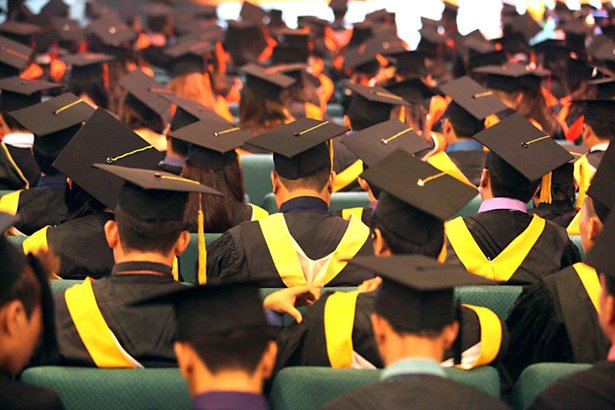The conferment of honorary degrees, or honoris causa, has long been considered one of the highest distinctions a university can bestow. In principle, it is meant to recognize exceptional achievements in scholarship, culture, or public service, contributions that go beyond the ordinary call of duty.
Yet in the Philippines, the practice has taken on a different character. Often, universities extend this honor to politicians whose supposed achievements are indistinguishable from the responsibilities of their office.
Why politicians? Why not scholars, academics, NGO leaders, or other stakeholders? This raises uncomfortable questions about the motive of Philippine higher education, and whether such gestures represent genuine recognition, strategic maneuvering, or outright flattery.
Philippine public universities depend heavily on government appropriations for their operations and development. Even private institutions, while less reliant on state subsidies, remain subject to regulatory approval for programs, accreditation and recognition.
In this context, awarding an honoris causa to a politician in power is rarely an innocent or neutral act. Awarding honorary degrees to politicians is not inherently bad.
However, there must be clear criteria that ensure no conflict of interest is present and no brown-nosing occurs. Universities serve as catalysts of transformation when they challenge existing government policies. How can this role be upheld when they patronize politicians? What should be a solemn recognition of merit risks being reduced to a transactional token in the country’s culture of patronage politics.
The usual justification is that politicians who have authored education laws or championed scholarship programs deserve recognition for advancing the public good.
A senator who advocates for free tuition or a president who increases funding for schools is portrayed as a benefactor of education. Yet these are not extraordinary achievements but functions that fall within the responsibilities of public office.
Rewarding them with honorary degrees for merely performing their duties weakens the meaning of academic honors. It conflates routine governance with exceptional contribution and erodes the prestige that universities should be guarding.
This practice also highlights how deeply embedded the patron-client relationship is in Philippine education. To remain in the good graces of those in power, universities often resort to symbolic acts that flatter rather than challenge.
Politicians gain the aura of academic legitimacy while universities gain visibility and possible concessions. It is an exchange that corrodes the independence of the academe. Higher education institutions should serve as critical spaces where ideas are tested and accountability is upheld, not as venues for political accommodation.
The consequences are felt inside campuses. Students and faculty alike see politicians receive in minutes the same degrees that they struggle years to earn, and the message they receive is troubling.
Faculty members watch their institutions elevate figures whose records may be controversial, and their sense of intellectual autonomy and identity as scholars is diminished.
Instead of reinforcing the principle that scholarship and critical inquiry are the highest values in education, these gestures suggest that proximity to power is what truly counts.
The Philippine experience shows that the awarding of honorary degrees to politicians often coincides with moments of political sensitivity.
There have been instances where such honors were conferred while university budgets were being deliberated in Congress, or when elections were approaching.
Even if the recipients had contributed to education, the timing of these awards raises suspicions that they were more about political positioning than genuine recognition. The pattern undermines the credibility of both the institution and the award itself.
To be clear, not all honorary degrees are inappropriate. When Philippine universities confer them on scientists, cultural workers, humanitarians, or community leaders, the practice aligns with the original intent of honoris causa.
The problem lies in the disproportionate focus on political figures whose achievements are inseparable from their mandated duties. By stretching the boundaries of what counts as an extraordinary contribution, universities risk reducing the honor to a mere symbol of convenience.
The international experience offers a contrast. Many universities abroad have tightened the rules for awarding honorary degrees, requiring that recipients show extraordinary contributions to humanity, culture, or scholarship and not simply service in political office.
Philippine universities could benefit from adopting similar safeguards. But the reform must start with the recognition that our institutions cannot continue to equate political visibility with merit. Exceptional contributions often involve a lifetime of work and dedication.
At stake is not just the symbolism of honorary degrees but the credibility of Philippine higher education. If universities are seen as complicit in political patronage, their moral authority weakens. Their ability to stand as independent voices in society is compromised. Their aspiration to be recognized internationally for excellence and integrity is undermined.
Philippine universities now face a choice. They may continue to hand out honorary degrees to politicians in the hope of securing favor, or they may reclaim the dignity of the award by reserving it for individuals whose contributions transcend obligation.
The first path entrenches the cycle of patronage that has long stunted the country’s political and educational systems. The second path demands courage but also restores integrity to an honor that has been cheapened by convenience.
Honorary degrees are symbolic, but symbols matter. They represent the values and aspirations that universities stand for. When institutions choose to honor politicians for doing what their positions already require, they suggest that bare-minimum public service is enough to merit the highest academic distinction.
This diminishes both politics and education, and signals to the public that academic honor can be traded for political favor. Universities that claim to be centers of excellence or even simply legitimate academic institutions must avoid degenerating into diploma mills that dispense recognition without substance.
If education is to remain the foundation of national transformation, then Philippine universities should draw a line. They should honor individuals whose work transcends obligation, whose contributions uplift society in ways that power and position alone cannot achieve.
Otherwise, the honoris causa will remain what it has too often become in our country: a political token that diminishes both the academy and the officials it seeks to celebrate. The future of Philippine higher education depends on whether our universities choose to honor service or continue to honor power.
Allen A. Espinosa and Arlyne C. Marasigan are professors and fellows at the Educational Policy Research and Development Office; Levi E. Elipane is associate professor and deputy dean of the College of Advanced Studies; and Ma. Arsenia C. Gomez is an associate professor at the Faculty of Behavioral and Social Sciences and director of the Research Management Office. They may be reached at [email protected], [email protected], [email protected], and [email protected], respectively. The views expressed here are those of the authors and do not necessarily reflect the official position of the Philippine Normal University.











